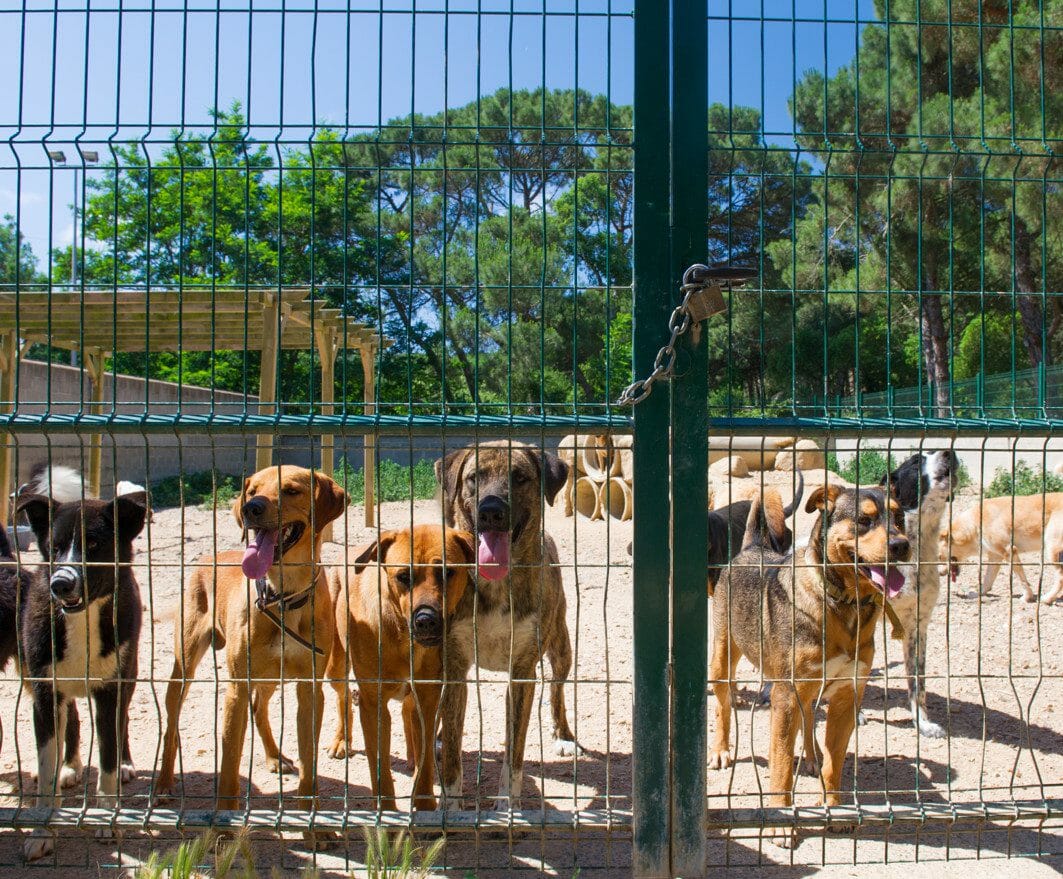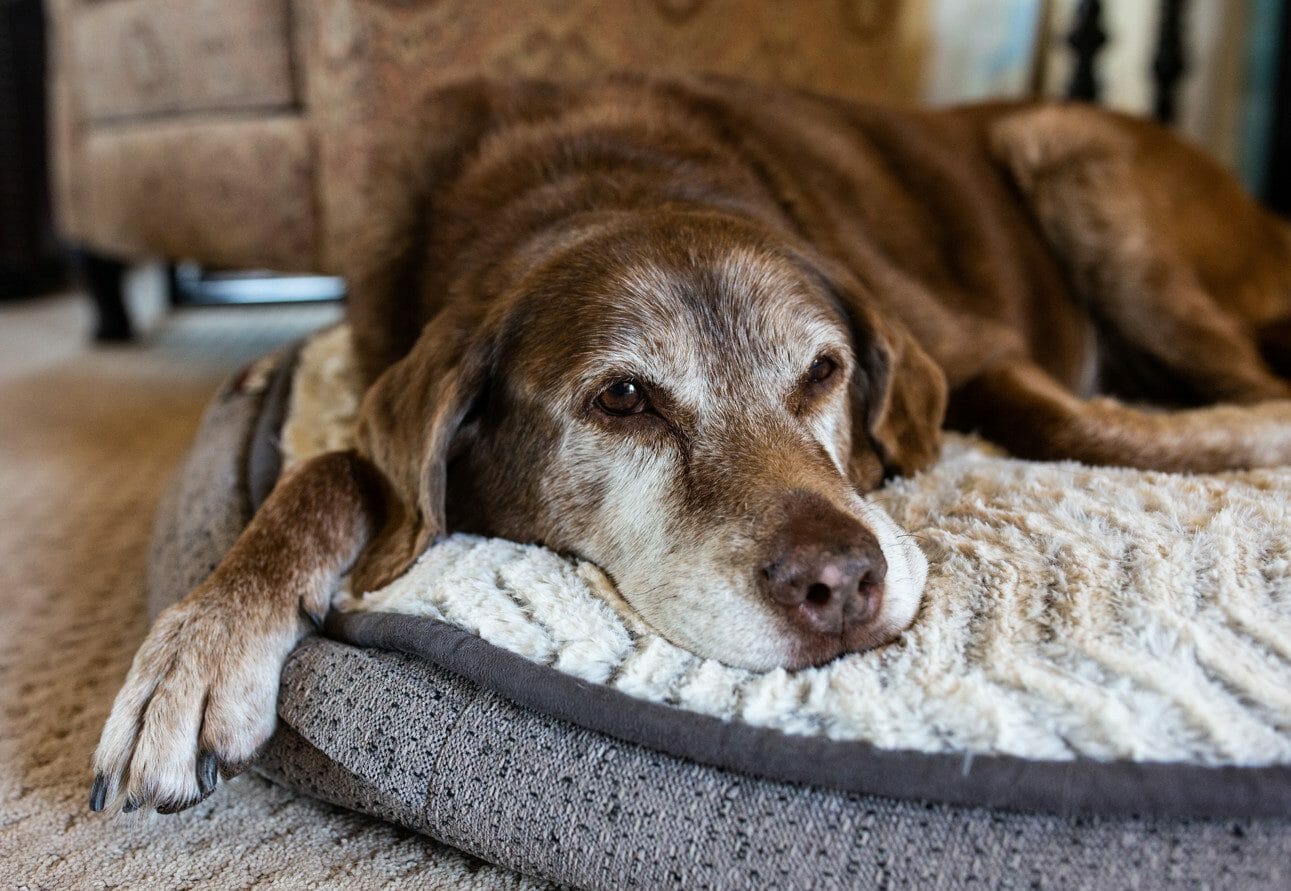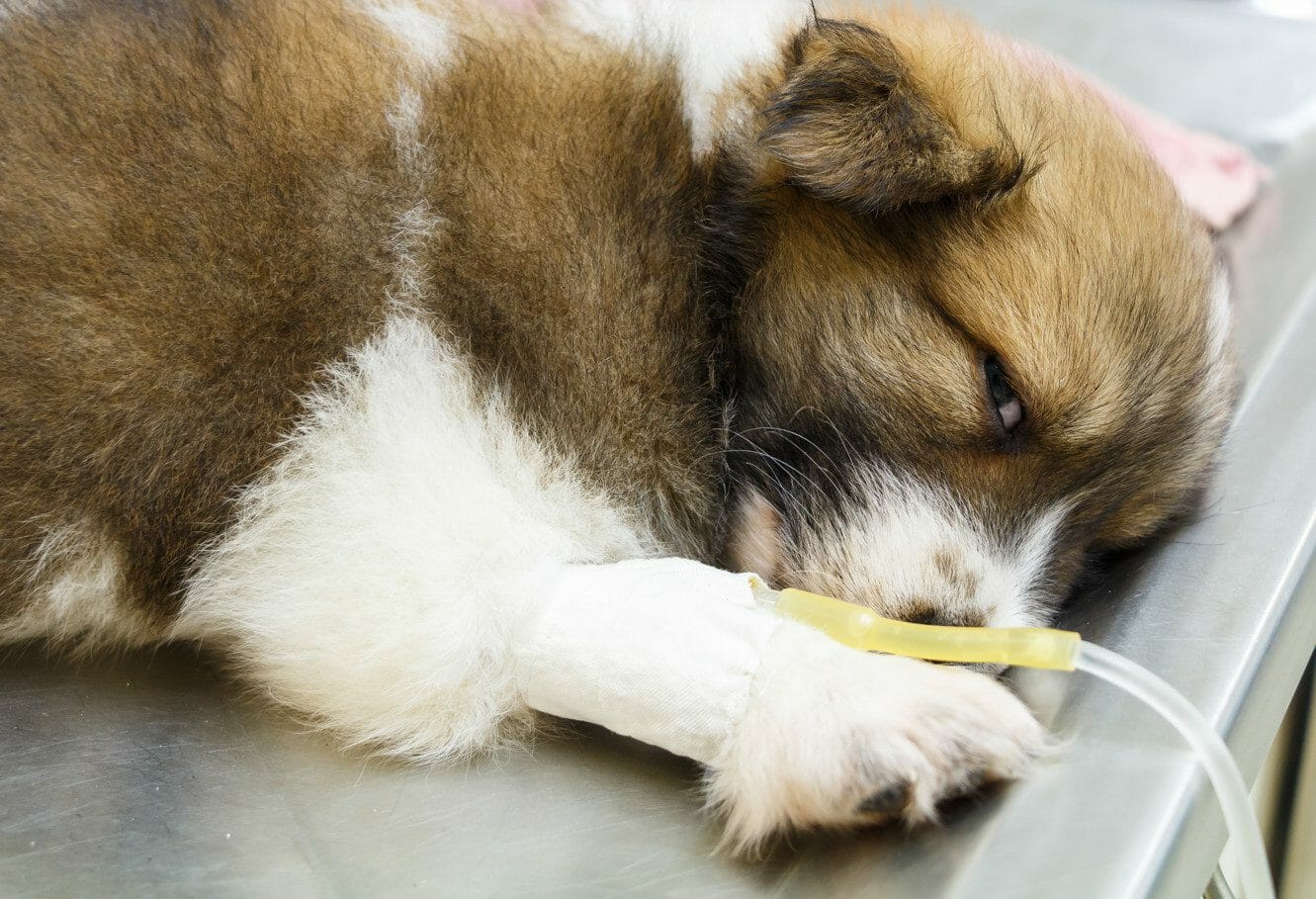What Is Canine Coronavirus?
By definition, the canine coronavirus (CCV) is an infection that is endemic in dogs alone. Dogs young and old may contract this virus, although young puppies are more prone to it than other age groups. Because of its viral, highly communicable nature, dogs all over the world are known to contract this infection one way or another.
Originating in the small intestines, canine coronavirus tends to spread to other parts of the body, namely the lymph nodes. Although the virus in and of itself is quite mild in terms of severity, it can sometimes be accompanied by the canine parvovirus (CPV), which is anything but mild. CPV is most common in young puppies. If the parvovirus or another infection is diagnosed alongside canine coronavirus, it could prove to be quite detrimental to the dog’s health.
It should be noted that canine coronavirus is not the same virus that causes COVID-19. Canine coronavirus does not affect humans.

What Causes Canine Coronavirus?
Canine coronavirus is primarily contracted when a pup is exposed to the infected feces of another dog. This can occur fairly easily because feces can be spread to shoes, food bowls, and even dog toys. The virus can be spread when the dog licks or sniffs these areas.
In most cases, this virus thrives in areas where a large number of dogs are concentrated at once. Places such as kennels, shelters, and dog parks are all viable breeding grounds for canine coronavirus.
Simply being around an infected dog can also facilitate the transmission of the disease. Because of this, it is recommended that young puppies should avoid areas with high volumes of other dogs because their immune system is not yet fully developed.
Duration
In most cases, canine coronavirus tends to last between 2 and 10 days. However, this time can be lengthened if the parvovirus or another illness is occurring at the same time. Even after the disease goes away, a dog can carry the infection for another 6 months. During this time, other dogs may become infected.
Is Canine Coronavirus Contagious to Humans?
No, this canine-specific virus is not contagious to any humans it may come into contact with. However, there is a type of coronavirus that humans may get, but it originates in the respiratory system rather than the intestines.

Can Cats Get It?
There is a feline version of the disease known as the feline coronavirus. This virus, which is particular to felines, may manifest in two different illnesses:
- Feline enteric coronavirus (FECV)
- Feline infectious peritonitis virus (FIPV)
Usually, the feline enteric coronavirus is not serious and usually goes away with treatment. However, in some cases, FECV may progress to become FIPV, which is both serious and potentially lethal. Similar to the canine version of this disease, the feline version is usually found in crowded places with high volumes of cats crammed in one area. Unlike the canine virus, this virus is spread through saliva, not feces.
Coronavirus Symptoms in Dogs
Detecting canine coronavirus can be tricky and complex for a few reasons. One of these reasons is that some dogs, especially those that are older, may exhibit no symptoms at all. Another reason is that all of the symptoms seen with this virus are also observed in countless other diagnosable problems, such as bacterial infections, bowel issues, and parvovirus. Because of this, it is easy to assume this virus is something entirely different than what it actually is.
This highlights how vitally important it is for a vet to diagnose an animal and not an Internet article or its owner, no matter how good intentions they may have.

Signs of Canine Coronavirus
Although some dogs display virtually no signs of the disease, those that do tend to show the symptoms listed below:
- Decline in normal eating habits, followed by a subsequent loss of weight
- Vomiting
- Acute dehydration
- Severe, sometimes bloody diarrhea (also may be watery and have a yellowish-orange tint to it)
- Noticeably depressed demeanor
In puppies, some of the symptoms are much more apparent and serious in nature. For example, some puppies may develop what is known as enteritis, which is when the small intestine becomes inflamed. This symptom, in particular, is something that must be urgently treated due to its gravity.
Canine Coronavirus Treatment
Treatments for canine coronavirus have been proved to be both efficacious and successful. As mentioned previously, this virus alone is minor and can be treated quite easily. It is only when it is combined with the canine parvovirus or another illness that it becomes significantly more serious.
The infection itself is most often treated by means of antibiotics that help to eliminate the current problem and also to keep secondary infections at bay.
Fluids are often given intravenously with the antibiotics. This is due to the intense dehydration that usually inflicts dogs with the virus. In particularly severe cases of this disease, a dog may need to be hospitalized for a period of time.

Treating the Symptoms
A veterinarian will also attempt to treat the dog’s symptoms, especially the intense diarrhea that often appears with this virus. Anti-diarrheal and anti-vomiting medications may be prescribed. It is highly recommended that the infected dog be kept away from all other dogs during the duration of treatment, because of how contagious the virus can be.
Vaccines for Canine Coronavirus
The vaccine for canine coronavirus, which is administered via subcutaneous injection, has garnered some debate over its necessity. Due to the mildness of the virus and the fact that most dogs over 8 weeks old do not contract it, many veterinary schools and canine-related organizations have stated that the canine coronavirus vaccine is not needed. This may also be due to the fact that required vaccines, such as those for canine parvovirus, tend to prevent dogs from getting canine coronavirus as well.
Side Effects Associated with Dog Vaccinations
Any vaccine should be carefully considered in comparison to the adverse side effects it may produce. Some of the common side effects of vaccines, although they are rare, may include:
- Overt depression and mood changes
- Anaphylactic shock
- Swollen face and body
- Bump beneath the skin around the site of injection
- Abnormal bleeding at the injection site
- Aggressive behavior
Although these side effects are a rare occurrence following vaccination, it is important to be knowledgeable about what to look for if a reaction is suspected. If any concerns arise over a vaccine, the best source of information is the dog’s vet.



